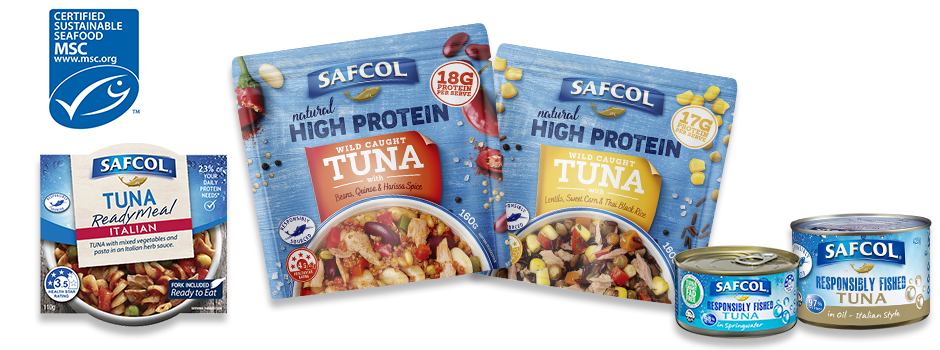by Ashleigh Feltham
Accredited Practising Dietitian and Accredited Nutritionist
Omega-3 is an essential fat, meaning you need it in your diet for your body to function optimally. This polyunsaturated fat is prevalent in sufficient amounts that the body best utilises in seafood, particularly fatty fish. This is why it is recommended to include seafood two to three times a week with a serving being 100g of cooked seafood. For athletes, the role of this essential fat may be needed at a level beyond these general health guidelines.

Omega-3 is a polyunsaturated fat that promotes healthy cholesterol levels and heart health. The omega-3 fats we get from seafood is comprised of docosahexaenoic acid (DHA) and Eicosapentaenoic acid (EPA), the most easily absorbed by the body. By comparison, in plant based sources, which are made up of alpha-linolenic acid (ALA), only about 1-7% is converted to the usable form of omega-3 fat EPA and DHA in your body. DHA is needed for the brain, skin and retina of your eye.
The International Olympic Conference has made recommendations based on the current research that athletes may need up to four times the amount of omega-3 fat than the general population. Each week, two to three serves of seafood, providing 500mg of EPA and DHA, is the amount recommended for the general population. Athletes may need around 2000mg, or eight to ten serves, of seafood each week.
For athletes, the anti-inflammatory properties of omega-3 fat become important, especially for recovery. Research has also linked omega-3 fat to reduced delayed onset muscle soreness effects. The ability of the muscles to grow (muscle protein synthesis) as well as muscle maintenance may also be improved when omega-3 fat is included in the diet.
Omega-3 fat for endurance athletes is even more important as this essential fat helps to dilate the blood vessels, improving blood flow and the availability of oxygen to the muscles when exercising.
Safcol provides a range of sustainably sourced seafood. The many varieties available are easily transported; pop one in your bag to enjoy before or after a training session. For ideas on how you can include seafood in your meals and snacks, check out the recipe tab on the Seafood Experts website.
Take home message
Omega-3 oils can play a huge role in improving your performance and optimising your recovery. If you are an athlete and not meeting the recommended servings of seafood each week, for the general population or for the athlete, then this is the best place to start. Before increasing your omega-3 intake above general population recommendations, seek individualised support from an Accredited Practicing Dietitian who personalise your diet to your individual needs.

Reference:
- Maughan, R. J., Burke, L. M., Dvorak, J., Larson-Meyer, D. E., Peeling, P., Phillips, S. M., Rawson, E. S., Walsh, N. P., Garthe, I., Geyer, H., Meeusen, R., van Loon, L., Shirreffs, S. M., Spriet, L. L., Stuart, M., Vernec, A., Currell, K., Ali, V. M., Budgett, R. G., Ljungqvist, A., Mountjoy, M., Pitsiladis, Y., Soligard, T., Erdener, U., & Engebretsen, L. (2018). IOC Consensus Statement: Dietary Supplements and the High-Performance Athlete, International Journal of Sport Nutrition and Exercise Metabolism, 28(2), 104-125. Retrieved Jul 30, 2021, from https://journals.humankinetics.com/view/journals/ijsnem/28/2/article-p104.xml
- Danielle Swanson, Robert Block, Shaker A. Mousa, Omega-3 Fatty Acids EPA and DHA: Health Benefits Throughout Life, Advances in Nutrition, Volume 3, Issue 1, January 2012, Pages 1–7, https://doi.org/10.3945/an.111.000893




